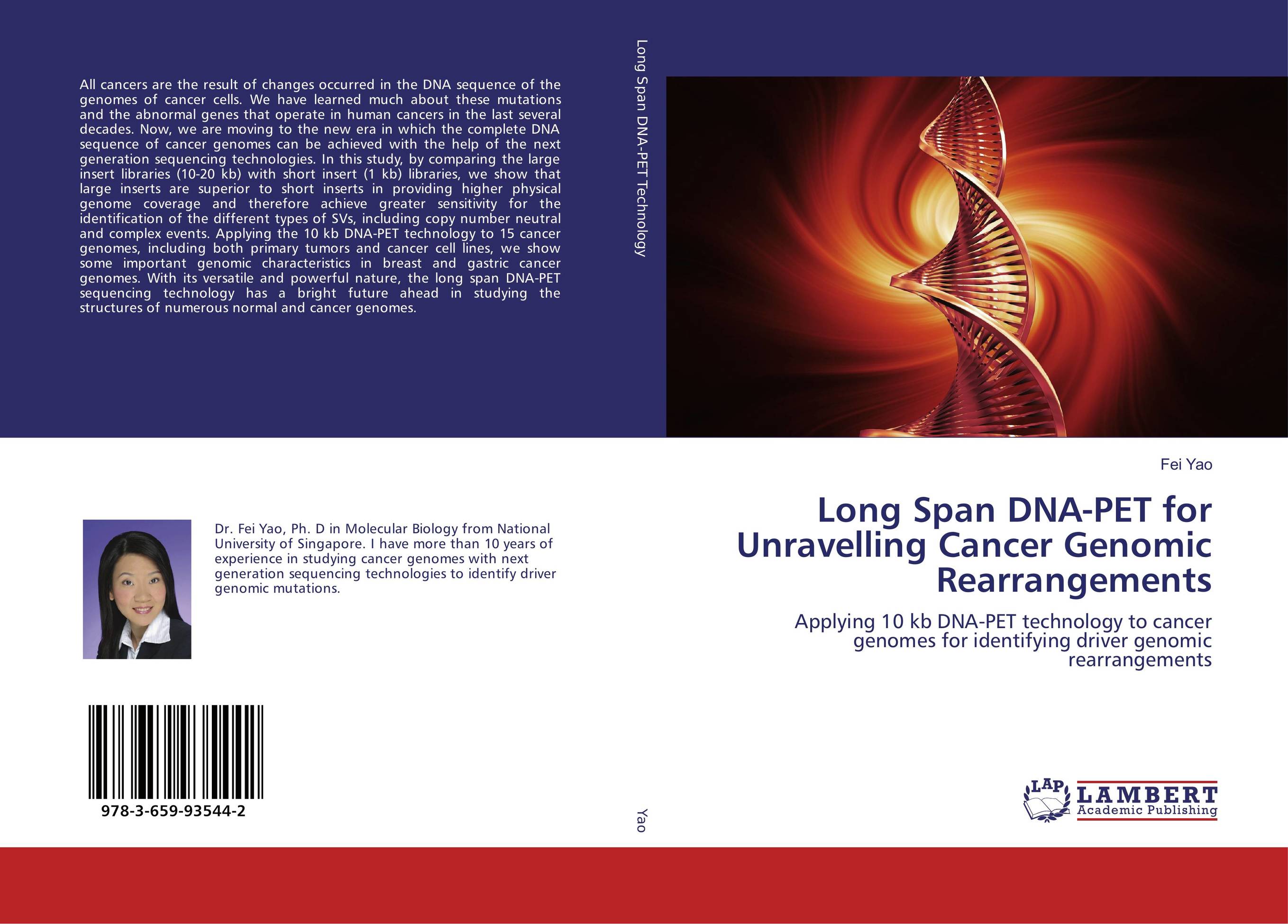| Поиск по каталогу |
|
(строгое соответствие)
|
- Профессиональная
- Научно-популярная
- Художественная
- Публицистика
- Детская
- Искусство
- Хобби, семья, дом
- Спорт
- Путеводители
- Блокноты, тетради, открытки
Long Span DNA-PET for Unravelling Cancer Genomic Rearrangements. Applying 10 kb DNA-PET technology to cancer genomes for identifying driver genomic rearrangements

В наличии
| Местонахождение: Алматы | Состояние экземпляра: новый |

Бумажная
версия
версия
Автор: Fei Yao
ISBN: 9783659935442
Год издания: 2016
Формат книги: 60×90/16 (145×215 мм)
Количество страниц: 180
Издательство: LAP LAMBERT Academic Publishing
Цена: 39571 тг
Положить в корзину
| Способы доставки в город Алматы * комплектация (срок до отгрузки) не более 2 рабочих дней |
| Самовывоз из города Алматы (пункты самовывоза партнёра CDEK) |
| Курьерская доставка CDEK из города Москва |
| Доставка Почтой России из города Москва |
Аннотация: All cancers are the result of changes occurred in the DNA sequence of the genomes of cancer cells. We have learned much about these mutations and the abnormal genes that operate in human cancers in the last several decades. Now, we are moving to the new era in which the complete DNA sequence of cancer genomes can be achieved with the help of the next generation sequencing technologies. In this study, by comparing the large insert libraries (10-20 kb) with short insert (1 kb) libraries, we show that large inserts are superior to short inserts in providing higher physical genome coverage and therefore achieve greater sensitivity for the identification of the different types of SVs, including copy number neutral and complex events. Applying the 10 kb DNA-PET technology to 15 cancer genomes, including both primary tumors and cancer cell lines, we show some important genomic characteristics in breast and gastric cancer genomes. With its versatile and powerful nature, the long span DNA-PET sequencing technology has a bright future ahead in studying the structures of numerous normal and cancer genomes.
Ключевые слова: Mutations, next generation sequencing, DAN-PET, cancer genome, genomic rearrangement



